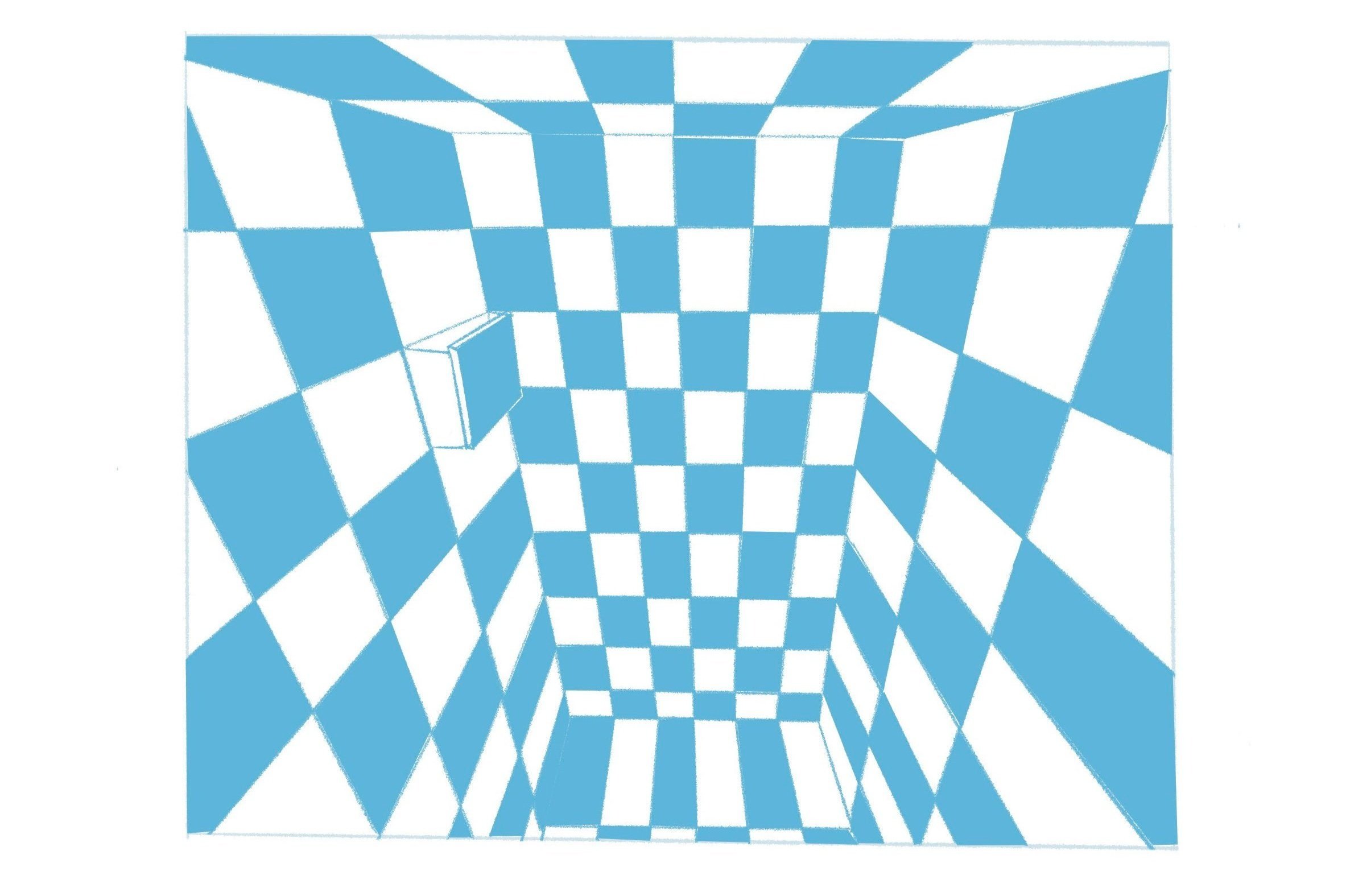By Chalay Chalermkraivuth
When Isabel Machado spoke to our class last November, my co-facilitators and I asked her about how being a fan of the drag artists she interviews figures into her work. She spoke of passing power to her narrators through her awe, studying by being, and her meta-interest in drag fandom, which will be the subject of her next project. Her notes on fandom, intimacy, embodiment, and study returned me to my early adolescence, during which I simultaneously discovered k-pop and the concept of archiving (though oral historians and archivists distinguish between archiving, collecting, and hoarding, and what I did is probably most appropriately described as the latter). This is a comic on the relationship between some of those things as I experienced them.
accessibility note: scroll to bottom of post for image alt text
-
1: At the top of a white page, blue hydrangeas spill from a frame that tilts downwards to the right. Over the flowers a text box is superimposed: it reads, “I first encountered the word ‘archive’ on (haha) tumblr.” Below, a cursor draws a box around a small section of the hydrangeas that has been copied and enlarged. Text reads: “which i had joined as a kpop fan.” On the bottom left of the page is a large pile of trash, also drawn in blue ink—there are trash bags, a dresser on its side, a skateboard, and a bucket, among other sundry items. A text box over the trash reads, “the fans i knew were obsessive archivists (or collectors, or hoarders.”
2: Two tilted blue clocks float on a white page, one distant, at the top of the page, and one up close, encompassing the bottom third of the page. Each clock has a text box superimposed over it. They read, “poring over moments reified in gif form and reblogging many of these moments a day. the totality of these moments was (and is) automatically gathered into what tumblr’s interface called an archive (e.g. blog.tumblr.com/archive)”
3: Overlapping, delicate, blue-lined petals fall from the top right of the page. Text reads, “which was chronological and exhaustive—archive-like.” Below, a blue oblong box slants downwards to the right; it contains the white silhouette of two hands almost touching. text reads: “the sensation of proximity granted by specific knowledge (of the asymmetry of someone’s smile, or their sleeping habits) was enchanting.”
4: At the top of the page, the silhouette of the hands reappears upside-down. The page is swathed in blue color; the box is now white and the hands are now blue. Text in a bubble reads: “fandom was a sticky mode of relation, too, which meant that within fandoms people became fans of each other.” A white door emanating a corridor of white light appears at the center bottom of the page. Text in that corridor of light reads: “I happened to become friends with a Big Name Fan (BNF), who suggested that I get on kpop twitter, where I started to meet more people.”
5: A vertiginous, checkered room. One blue tile has popped open like a drawer. Text in a box below the image of the room reads, “I knew that tweets were ephemeral, and redoubled my fan-ish hoarding, screenshotting all my interactions with my new friends.”
6: The pile of trash reappears upside-down, now dominating the top half of a page and shaded in blue. At the bottom of the page, a person stands on a narrow path, looking up at the trash with an uncertain posture. Text meanders down the page in the white space between the trash and the path: “even after I’d pared back my screenshotting, I remember being gripped by panic when I realized one of my first friends had her tweets set to auto-delete (which I now think is a very sensible choice), meaning the interactions I’d chosen not to screenshot were lost. I also grieved when a 32G thumbdrive full of thousands of gifs was corrupted.”
7: A 4 by 4 grid of squares; a blue cat’s face swims through the
squares from the top right. Unevenly patterned throughout the squares is text: “I stopped screenshotting eventually. It was laborious, and I never looked back at what I hoarded, and those earlier losses informed me that it wasn’t so bad not to have some things in a permanent way. Also, I had greater trust in the endurance of relationships and human memory. I stopped being a fan too.”
8: A large box in the bottom right of the page contains a blue book, upside down, pages falling out haphazardly. Three text boxes meander over the image. They read: “fan epistemology as I experienced it was an unstable way of experiencing things, conflating knowledge with intimacy and remembering with possession. And my collections did not outlast my fervor.”
9: A wash of blue over the page. A huge concert stadium; the audience is depicted as speckles of light, since at kpop concerts fans will often carry lightsticks in the kpop group’s official color. In the bottom left foreground are huge white hydrangeas. Three text boxes flow down the page: “It’s interesting, though, as Dr. Machado says—the intensity of love and hate, the religious devotion (kpop and other celebrities are called idols). She talked about Kareem Khubchandani, who transitioned from being a fan and scholar of drag to also being a drag queen, combining studying and being. Machado’s not a drag artist, but she too combined study and absorption. So the absorption can take positive forms.”
10: Final page of the comic is white with delicate, spare line art. Two boxes hug each other, one above and one below, with a slanted border between. In the above box is a single cluster of hydrangeas; in the below box, petals fall upwards. The first box reads, “the older I’ve gotten, the less appealing it is to conceive of memory as possession anyway.” The second box reads: “so—toward another fan epistemology?”











